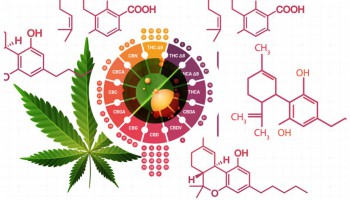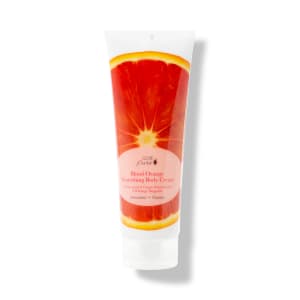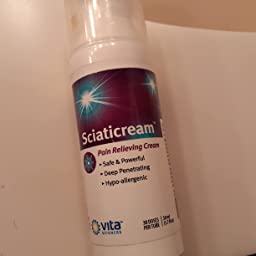
THCA, also known as the analogue to THC, is an anti-inflammatory medication that offers some of the same benefits as THC. While it's non-toxic and passes drug testing, it can have some adverse effects. This article will look at THCA's pros and cons. It is worth reading the information before you start thinking about it.
THCA, or THC analog, is a form of THCA
THCA is a naturally occurring chemical compound in cannabis plants. It is a natural analog to THC. This substance has anti-inflammatory properties, anti-tumor and anti-microbial qualities. It has also been used to treat Irritable Bone Syndrome (IBS). THCA also exhibits neuroprotective properties.
THC and its analogues are chemically identical, although they perform slightly differently. Both substances are Schedule I in the United States. They have similar effects and affect the central nervous. The most common THC analogue is delta-9 THC, which is responsible for the intoxicating effect of marijuana.

It has non-intoxicating effects
THCA is a cannabis-derived chemical compound that has many medicinal applications. THCA can relieve nausea and inflammation and is non-intoxicating. Although not recommended for such purposes, THCA can be used to treat seizures.
THCA does not cause intoxication, however it is important that you know the difference between THC and THCA. You can also have a drug test to check for THCA, as it is a target substance.
You could fail a drug screen
THCA is an amino acid that occurs during the metabolization THC which is the active part of marijuana. If THCA is detected in the urine, it could cause you to fail a drug screening. This acid can be found in raw cannabis or in tincture. It is capable of transforming into THC when it is heated to approximately 220 degrees Fahrenheit.
It has side effects.
There are some negative side effects associated with using THCA. THC is not clinically proven to reduce pain. However, it does possess neuroprotective, antiinflammatory, and antiemetic properties. It can slow down the progression and progression of neurodegenerative conditions. It has been used in the treatment of conditions such as Irritable Bowel Syndrome (IBS), colitis, and in some preliminary studies, seizures.

THCA doesn't cause any intoxication or psychoactivity, but some have reported nausea. It is a natural substance found in marijuana that will be broken down into THC when heated. It could also become the semi-intoxicating CBN. Some companies are now selling THCA products over-the-counter in the United States, but it is subject to local laws.
It is not a Scheduled Substance
It is crucial to know the differences between a Scheduled Substance (or controlled substance). A Scheduled Substance (or drug with high potential for abuse) is one that is not allowed to be used. A drug is considered a Scheduled Substance if it has no accepted medical use in the United States and a high potential for abuse. This includes certain narcotics and stimulants. These drugs can be addictive and cause psychological and physical dependence.
There are two types if controlled substances: Schedule I or Schedule II-V. Schedule I substances are restricted because they are susceptible to abuse and are not widely accessible or accepted for clinical practice. These substances are illegal to possess and not available for prescription in America.
FAQ
Which countries have the best quality CBD?
The United States is home to the greatest number of CBD products.
High-quality CBD products are also being produced in Canada, Australia and New Zealand.
How can CBD products be successfully promoted by companies in a regulatory-compliant way?
The FDA does no regulate hemp as a crop commodity. The Controlled Substances Act governs all other cannabis derivatives, such as marijuana. CBD has yet to be subject to specific regulations.
CBD is legal in 29 states. However it is still illegal under federal law. This uncertainty creates uncertainty for CBD product sellers.
The FDA has strict guidelines regarding how CBD products can be promoted. THC content must be clearly disclosed. Without scientific evidence, companies cannot claim CBD treats certain medical conditions.
Further, the FDA requires that manufacturers provide information on manufacturing practices and quality controls. They require companies to carry out clinical trials to prove safety or efficacy.
Companies should consider these factors when developing their own marketing strategies.
Is there any evidence CBD has anxiety-reducing properties?
CBD oil can be used to treat anxiety. It interacts with CB1 receptors and CB2 receptors in your brain. The endocannabinoid systems regulates mood and stress response.
CB1 receptor activation occurs when our bodies feel anxious. This receptor triggers the amygdala to activate, which is responsible in emotional processing.
When the CB1 receptor gets blocked, the amygdala can't process emotions. As a result, people who take CBD experience fewer negative feelings.
A study published in 2017 showed that CBD reduces anxiety in patients with social phobia. Another study concluded that CBD had a positive effect on symptoms of PTSD.
A 2018 review concluded CBD has anxiolytic potential and could be used to treat generalized anxiety disorder.
Another study found that CBD could also be used to treat panic attacks.
However, numerous studies have shown CBD to increase anxiety levels in mice.
The difference in results between animals and humans could be explained by differences in the way that CBD is metabolized in different species.
CBD is not subject to any long-term safety tests. Experts agree that CBD is safe when taken as directed.
Statistics
- A recent systematic review of human trials also reported that individuals with epilepsy receiving CBD (5–20 mg·kg−1·day−1) were more likely to experience decreased appetite than those receiving placebo (i.e., ~20 vs. 5% of patients) (ncbi.nlm.nih.gov)
- While the primary injury may not be treatable, interventions that attenuate secondary sequelae are likely to be of benefit [203].Only one study (ncbi.nlm.nih.gov)
- A recent study [161] also found that in vitro CBD treatment (i.e., ≤ 2 h exposure to 10 μM) induced ~40% vasorelaxation in isolated (pre-constricted) (ncbi.nlm.nih.gov)
- CBD seems unlikely to directly influence sleep in healthy humans [115] (and maybe “sleep-promoting” in those with certain comorbid conditions) (ncbi.nlm.nih.gov)
- The inhibition of FAAH is predicted to lead to an increase in brain and plasma concentrations of AEA, which acts as a partial agonist at CB1R and CB2R, thereby increasing endocannabinoid tone [92, 110]. (ncbi.nlm.nih.gov)
External Links
How To
How to promote CBD via social media
Social Media channels, such as Facebook, Twitter, Instagram and Pinterest, can help you promote your product.
Social Media Marketing, or SMM, is one of the most powerful marketing tools today. It allows you connect with prospects and customers on an unprecedented scale without having ever to use the phone or send out mass emails. Your imagination is all that stands between you and your dreams. So, what would you do to make your business succeed?
CBD, a Cannabis Sativa plant extract, is well-known for its medical benefits. There are several types of CBD products. The two most popular are full spectrum and isolate. Isolate CBD oil is made from CBD oil that has been extracted from hemp plants. Full-spectrum CBD oil comes from whole plants.
Full Spectrum CBD Oil is made from the whole hemp plant. It contains some THC, which makes it legal in certain states. You cannot obtain CBD oil with THC if medical marijuana is banned in your state. Hemp plants are low in THC but have enough THC for them to be illegal.
You could advertise on Facebook if your CBD products are sold online. Advertise on YouTube and Pinterest are not good choices for CBD. You should choose the platform that suits your audience and their preferences. Medium might be a good choice if you want to reach people who prefer reading content over watching videos.
You aim to bring new leads to you website and turn them into paying customers. This process involves getting attention and engagement from potential consumers. Provide value first to be successful. Once they find value and start to trust your content, you will be able to build trust with them. When they trust you, they will be your lead.
The sections below will explain how to set-up and manage Facebook advertising campaigns.
Facebook Advertising Setup
Create an Ad Account
Follow these steps to create an ad-based account
-
Click "Create New Campaign."
-
Give your campaign a name.
-
Choose a location to display your ads.
-
You can choose to target specific areas or not.
-
Set your budget.
-
Look for the box next, "Advertising Supervisor."
-
Click "Next step."
-
Scroll down to choose the layout of your ads.
-
Add tags to your campaign by clicking the "Add Tags" button.
-
Click "Save" and then click "Continue."
-
Follow these instructions to complete all fields.
-
Click Continue to proceed.
-
Please complete the required information.
-
Click Continue.
-
Review the information provided and click Confirm.
-
Your account has been created.
Now, you can add keywords to your ad account.
Targeting Options
Facebook allows you to target advertisements in four different ways, as we have already mentioned.
Location-Based Targeting:
Targeting users can be done based on their geographic location. This could include using a country, city, region, country or continent. Targeting anyone within 100 miles of Seattle is possible, for example.
Demographic Targeting
You have the option to target people based on age, gender, relationship status, education level, occupation, income, interests, religion, political affiliation, and more.
Interest-Based Targeting:
You also have the option to target people according to their interest in your products. You can target people who are interested in hiking, if they like hiking.
Behavioral Targeting
This is similar with interest-based targetting, except that you don't target people based only on their interests. Instead, you target people based based what actions they take. Targeting people who click on your links and visit your website could be an example.
Keywords
Keywords are the foundation of any Facebook marketing strategy. They determine where your ads will appear on the platform. Your ad account will prompt you to enter a list keyword list. The size and number of keywords that you can include will depend on how large your ad campaign is.
Keyword Suggestion tool:
When entering keywords, it may be helpful to use the keyword suggestion tool at the screen's bottom right-hand side. It allows users to search through suggestions keywords related to their current selection.
Keyword Suggestions
You can enter your keywords and the suggestions that are displayed will depend on the type you have selected. Each type of targeting will have different suggestions.
Then, follow the prompts and you will get your first ad published.